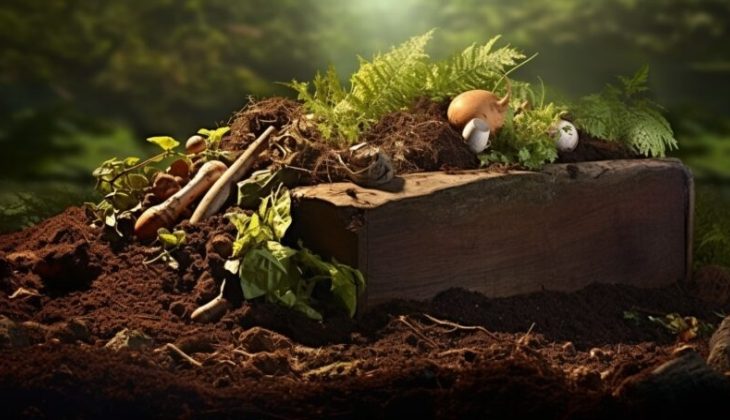From Scraps to Soil: Why You Should Consider Composting Food Waste

Every year, an immense quantity of food goes to waste worldwide, contributing large amounts of greenhouse gas and waste. However, with the use of composting, we can turn waste into a sustainable opportunity. In this blog post, we will dive deep into the art of composting food waste, the importance of it, and types of food that can be composted.
What Is Composting Food Waste?
Composting food waste is a method where you turn organic food and kitchen scraps into nutrient-rich soil via organisms and bacterial breaking them down naturally. These organisms consume any organic scraps and in time it will turn them into compost, which is a great nutrition source for plants.
The Importance of Composting
Reducing Methane Emissions
According to Forbes, the global volume of food waste is estimated at 1.6 billion tons. Meanwhile, In the United States, up to 40% of all food produced is wasted in these landfills, food waste decomposes anaerobically, releasing methane, a greenhouse gas 25 times more potent than carbon dioxide. Composting can help decrease methane emissions by 50% via improving carbon sequestration in plants and through aerobic decomposition.
Creating Enriched Soil
As stated previously, composting transforms food scraps into nutritional soil which is a superfood for plants. This is vital to the health of the ecosystem, almost all plants grow on soil. Fertile soil will hold more moisture, improve the quality of quantity of food production, and provide nutrients that will benefit the farmers and the ecosystem.
Sustainable Waste Management
Composting is one of the solutions that the United Nation’s environmental program advocates. According to the United Nations, if composting is adopted worldwide, there is a chance to reduce methane emissions by 2.1 billion tons by the year 2050 and one step closer to achieving the Sustainable Development Goals.
Composting Food Waste At Your Home: Here Are the Basic Steps
To get started on your composting journey, below here are the essential steps you need to know:
- Decide How You Are Going to Collect and Store Your Scraps:
- Consider a Compost Bin or Compost Pile:
-
- Maintenance: Keep your compost pile or bin well maintained, and ensure that it is not too dry for the most bang of your buck
- Choose Your Method Composting:
- Vermicomposting or Worm Composting: the use of red worms to break down food scraps.
- Yard Composting or Compost Bin
What Food Waste Can Be Composted?
There is plenty of food that can be composted. However, some are more effective than others. Below here are a list of easily compostable foods:
- Almost all Fruit and Vegetable Scraps: Nearly all organic fruit and vegetables can be composted.
- Paper filters, Tea bags and Coffee Grounds: Yes, even the paper filter can contribute to composting! Don’t waste any of your daily beverages and recycle them!
- Eggshells, Bread, Pasta, and Baked Goods: Any form of stale bread, pasta, raw eggshells, and baked goods can be composted. If it is organic, it can be composted!
- Rice, any type of Grains and even Pet food: Yes, even pet food can be recycled, don’t waste any of your excess grains and pet food.
- Beans, Nuts, and Seeds: All plant-based treats are compost-friendly!
- Any type of Meat and Fish waste: While viable for composting, exercise caution as they may attract pests and produce unpleasant odors. Use them sparingly.
Compost Bin Vs Compost Pile
Both have their benefits but with a compost bin, all organic materials are easily kept together, and composting is processed more evenly and easier to maintain than Compost Pile. It is ideal for individuals living in urban areas or smaller spaces. Furthermore, compost bins do not smell as bad as a compost pile!
Meanwhile, a compost pile is a great option for individuals who produce significant amounts of organic waste. It requires more maintenance and physical labor.
Conclusion
Composting food waste is a vital and sustainable choice, it is a powerful approach to recycling, and it is advocated by the United Nations as an environmental solution. Every one of us can easily turn our food scraps into garden gold and contribute to the environment!







